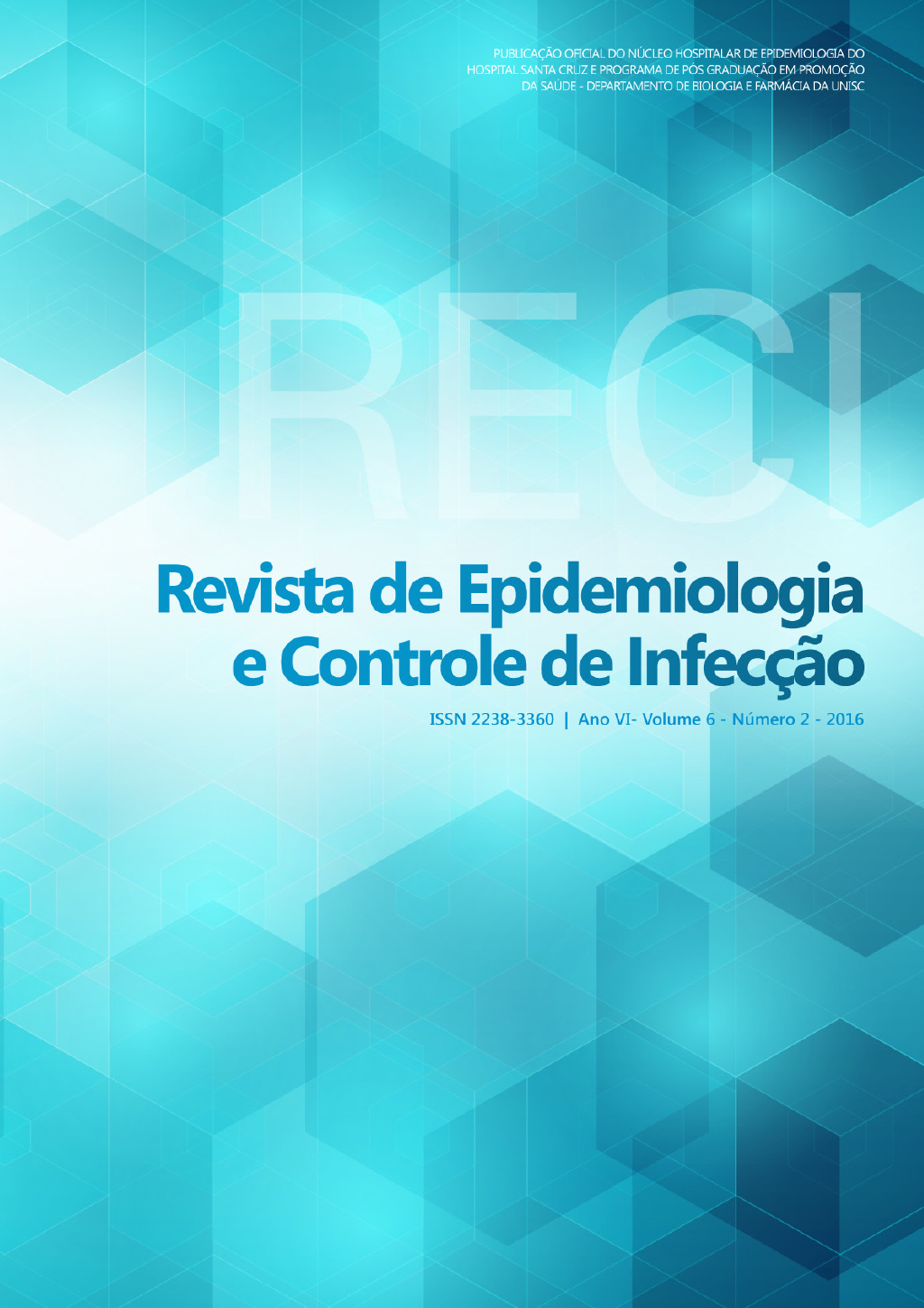Multiple healthcare-associated infections in a patient with Crohn's disease: Case report
DOI:
https://doi.org/10.17058/reci.v6i2.6850Resumen
Background and Objective: Healthcare-associated infections (HAIs) are the main cause of death in hospitalized individuals worldwide, related with preexisting disease and invasive procedures. The present study aimed to identify the microorganisms in a immunosuppressed patient and their antimicrobial resistance profile. Case report: A 33-year-old man with Crohn's disease was admitted in a hospital for an enterostomy and cholecystectomy, with postoperative fever and gastrointestinal bleeding. Infections of the urinary tract, into the bloodstream and associated with vascular catheter were evaluated by collect of urine, blood and secretions from catheter tips, individually plated on specific media for direct identification and antibiogram in VITEK® 2. Two different vascular catheters samples and a hemoculture revealed Staphylococcus aureus strains β-lactamases producers, with macrolide-lincosamide-streptogramin B (MLS B) and methicillin resistance phenotypes (MRSA), and one indication of VISA (Vancomycin-intermediate S. aureus). Pseudomonas aeruginosa and P. luteola were detected in catheter tips with different resistance profile, whereas Trichosporon asahii and Klebsiella pneumonia (ciprofloxacin/levofloxacin resistant) were isolated from urine. Amikacin, meropenem polymyxin B, piperacillin/tazobactam, ciprofloxacin, cefepime and amphotericin B were administered to this patient. Conclusions: The patient survived even after multiple infections with pathogens usually envolved in HAIs and mortality in brazilian hospitals.Descargas
##submission.downloads##
Publicado
Cómo citar
Número
Sección
Licencia
The author must state that the paper is original (has not been published previously), not infringing any copyright or other ownership right involving third parties. Once the paper is submitted, the Journal reserves the right to make normative changes, such as spelling and grammar, in order to maintain the language standard, but respecting the author’s style. The published papers become ownership of RECI, considering that all the opinions expressed by the authors are their responsibility. Because we are an open access journal, we allow free use of articles in educational and scientific applications provided the source is cited under the Creative Commons CC-BY license.


